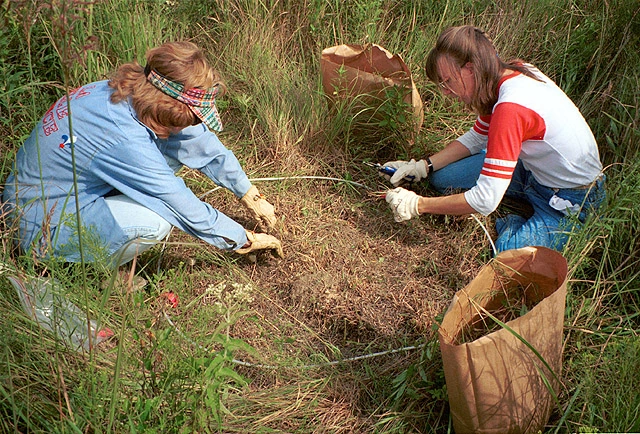Welcome back to our new column: a weekly behind-the-scenes peek at what our team has been reading, learning and discussing. Let us know what you think at [email protected].
Cropped out
Paying farmers not to farm: that’s the seemingly counterintuitive idea behind a story Executive Editor Will Doig shared from Modern Farmer. It digs into the pros and cons of the US’s Conservation Reserve Program (CRP), which asks producers to voluntarily stop farming on environmentally vulnerable land. In 2023, agricultural producers and landowners were paid a total of $1.77 billion through the program.

Though the CRP dates back to 1985, it may only become more necessary as time goes on. “Given the water situation, I’ve been wondering if a large-scale drawdown in farming across the American West — and how the government manages that — will become one of the defining issues of the next few decades,” Will says.
Build better
Building a skyscraper is no easy task. But is it that much harder to build one that’s fully reliant on electricity and burns zero fossil fuels? As Fast Company reports, according to the team in New York City that’s done just that: not really.
What intrigues Editorial Director Rebecca Worby about this story is that “the problem-solving involved seems simple and smart,” she says. “It’s mostly about finding ways to make the building more efficient (like better insulation and triple-glazed windows) so it needs less energy to begin with.”
What else we’re reading
🌊 Decades after Europe, turning blades send first commercial offshore wind power onto US grid — shared by Will Doig from AP News
💉HPV vaccine stops women in Scotland from getting cervical cancer, study finds — shared by Audience Engagement Manager Mariel Lozada from STV
🔋 A huge battery has replaced Hawaii’s last coal plant — shared by Rebecca Worby from Canary Media
Elsewhere in our channels…
This week, we were pleased to see that a mention in the 1440 newsletter brought lots of new readers to Geetanjali Krishna’s RTBC story about “water ATMs” and the rural entrepreneurs who operate them. Thanks, 1440!









